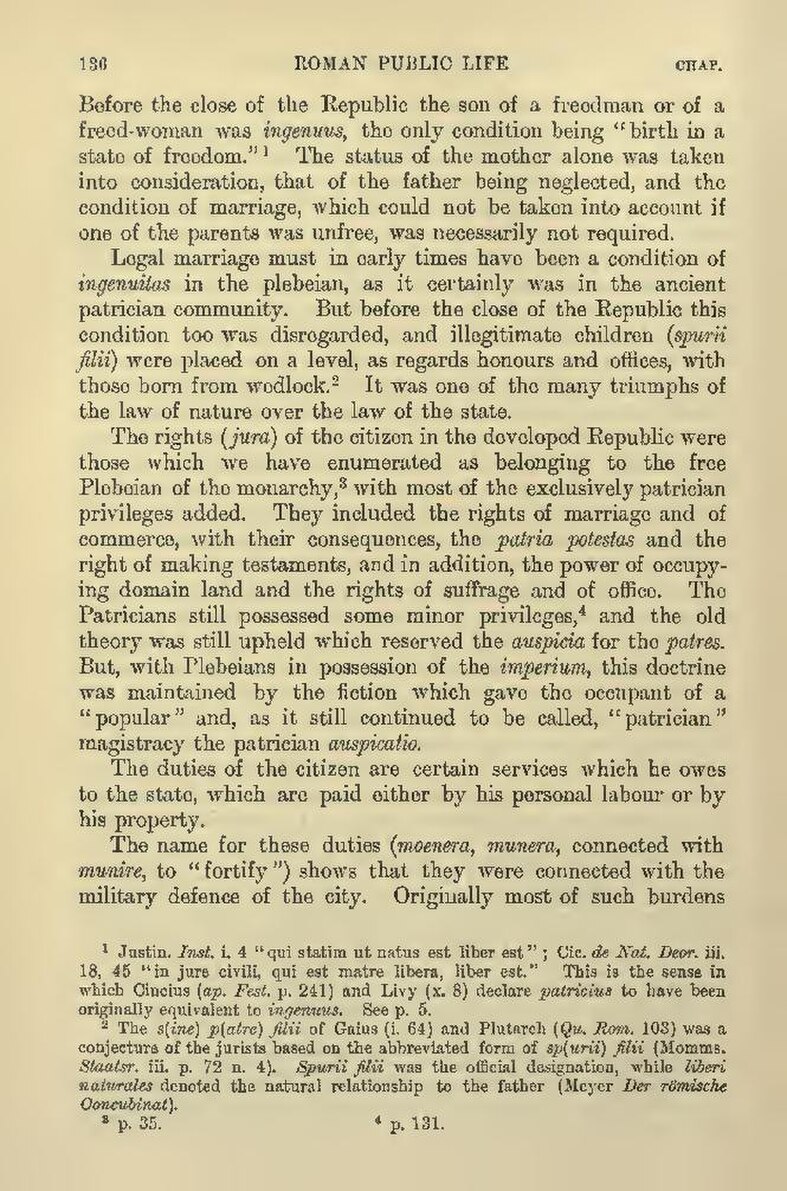Before the close of the Republic the son of a freedman or of a freed-woman was ingenuus, the only condition being "birth in a state of freedom."[1] The status of the mother alone was taken into consideration, that of the father being neglected, and the condition of marriage, which could not be taken into account if one of the parents was unfree, was necessarily not required.
Legal marriage must in early times have been a condition of ingenuitas in the plebeian, as it certainly was in the ancient patrician community. But before the close of the Republic this condition too was disregarded, and illegitimate children (spurii filii) were placed on a level, as regards honours and offices, with those born from wedlock.[2] It was one of the many triumphs of the law of nature over the law of the state.
The rights (jura) of the citizen in the developed Republic were those which we have enumerated as belonging to the free Plebeian of the monarchy,[3] with most of the exclusively patrician privileges added. They included the rights of marriage and of commerce, with their consequences, the patria potestas and the right of making testaments, and in addition, the power of occupying domain land and the rights of suffrage and of office. The Patricians still possessed some minor privileges,[4] and the old theory was still upheld which reserved the auspicia for the patres. But, with Plebeians in possession of the imperium, this doctrine was maintained by the fiction which gave the occupant of a "popular" and, as it still continued to be called, "patrician" magistracy the patrician auspicatio.
The duties of the citizen are certain services which he owes to the state, which are paid either by his personal labour or by his property.
The name for these duties (moenera, munera, connected with munire, to "fortify") shows that they were connected with the military defence of the city. Originally most of such burdens
- ↑ Justin. Inst. i. 4 "qui statim ut natus est liber est"; Cic. de Nat. Deor. iii. 18, 45 "in jure civili, qui est matre libera, liber est." This is the sense in which Cincius (ap. Fest. p. 241) and Livy (x. 8) declare patricius to have been originally equivalent to ingenuus. See p. 5.
- ↑ The s(ine) p(atre) filii of Gaius (i. 64) and Plutarch (Qu. Rom. 103) was a conjecture of the jurists based on the abbreviated form of sp(urii) filii (Momms. Staatsr. iii p. 72 n. 4). Spurii filii was the official designation, while liberi naturales denoted the natural relationship to the father (Meyer Der römische Concubinat).
- ↑ p. 35.
- ↑ p. 131.
